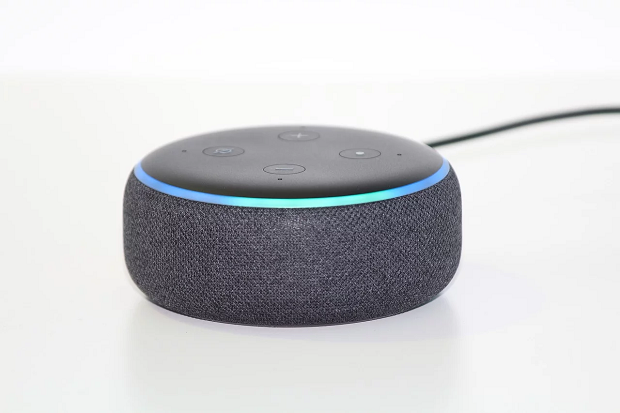While people are confident in using smart tech, a good proportion simply don’t want to invest in it yet, according to new research.
The research, conducted by Toluna and Harris Interactive, has revealed some interesting perceptions on the familiarity and use of new technologies by people across the UK.
Highlight stats include:
- 31% of people don’t own a wearable, voice assistant device or smart home appliance
- 46% of people said that they would not be comfortable with retail stores using facial recognition technology to better personalize point of sale adverts
- If advertising was introduced to smart speakers, nearly 40% would be less willing to use them
Although most have used facial recognition technology, voice assistant devices, wearables and other smart devices (75%), mainly for entertainment purposes (44%), a surprising number of those surveyed have not yet invested in the new technologies.
Indeed, 31% of people don’t own a wearable, voice assistant device or smart home appliance. For example, 36% haven’t used a smart assistant, such as Amazon Alexa or Apple Siri.
The percentage of those in the UK who don’t own the latest smart tech devices is more than double than those in Italy, where only 14% aren’t invested in new technology. However, UK consumers use such technology more than Germans, where 46% of people don’t own any of these new gadgets.
Steve Evans, sector head, technology, media, telecoms and entertainment, Harris Interactive UK said: “The research flags some interesting sentiment across the UK when it comes to the use of the latest and greatest technologies in everyday lives.
“It shows that people are confident with using smart tech and associated devices but there’s clear evidence that a good proportion simply don’t want to invest in the latest technology just yet.
“This could be because they’re happy to spectate development for a while longer, to see how far we go with smart devices and if technologies such as facial recognition, voice assistance and virtual reality become mainstream.”
The research also reveals UK consumer caution towards the way companies are using technology to better target consumers with their services and products.
For example, when asked if they would be comfortable with retail stores using facial recognition technology to better personalise point of sale adverts, 46% of people said that they would not be at ease at all.
Similar with the reaction to smart speakers, if advertising was introduced to devices, when asked if this would change their behaviour towards this technology, nearly 40% said they would be less willing to use the speakers.
When asked about the future of in-car technology, nearly 35% of respondents said they didn’t care about having smart features in their vehicle.
On the other hand, 52% said they would be more likely to buy clothing or make-up if they were able to virtually try it on or see how it would look like at home, demonstrating a real ‘pick and mix’ attitude among consumers with what they want technology to do and how they wish to use it.
“It’s obvious that technology developments have given people more convenience, more time and allowed them to personalise their lives to their specific likes and dislikes,” Evans continued.
“Our research shows that although people enjoy and understand how new technologies work and the benefits they provide, there is a line drawn when it comes to how far technology penetrates our lives, especially if it infringes on privacy.
“Ultimately, consumers still want to remain in control of how, when and why they use technology. As the trend towards automation grows, we remain cautious about how it impacts human decision making which will always be the favoured choice.”

